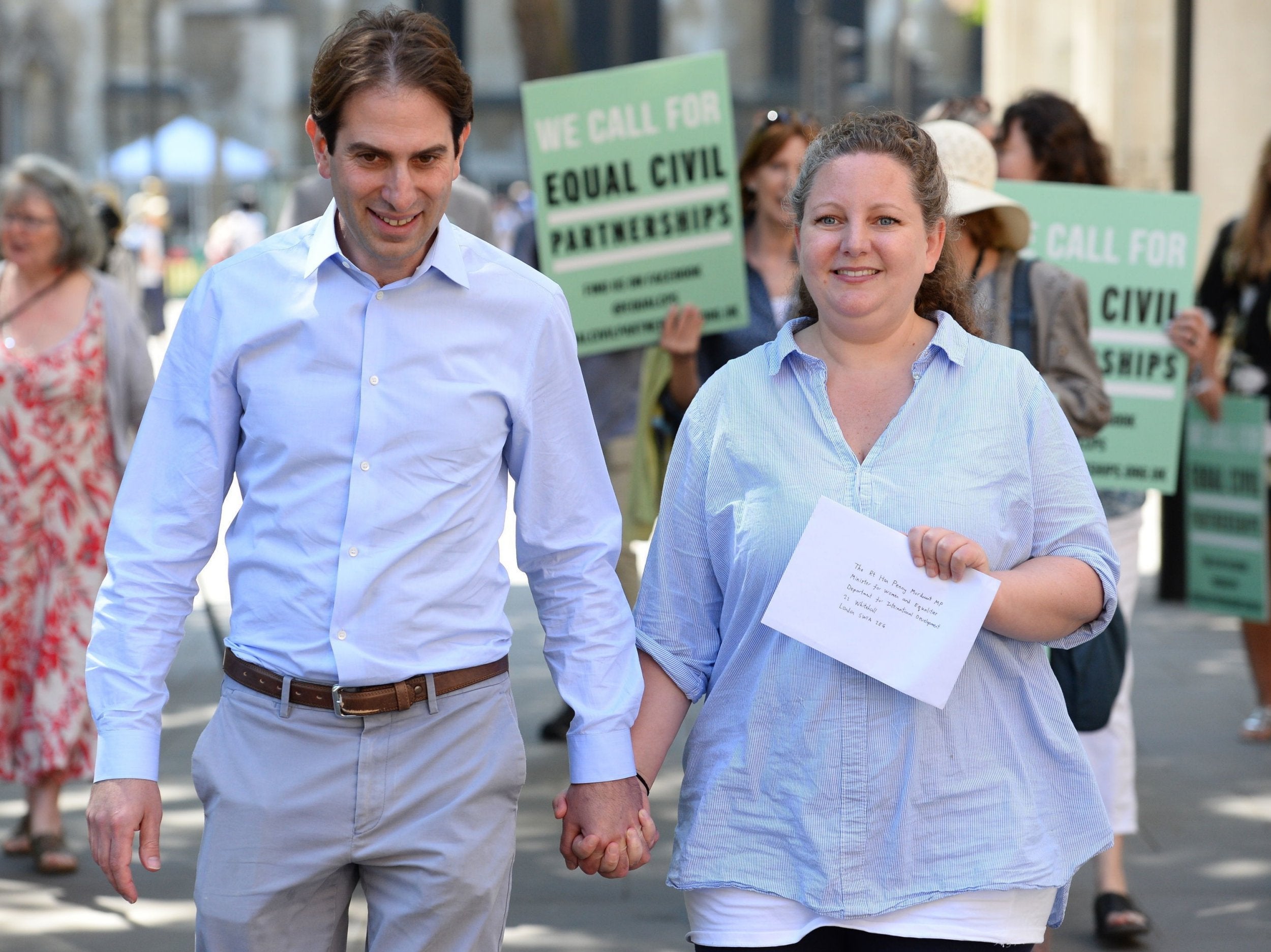Straight couples to be allowed civil partnerships after law changed by government, Theresa May says
Supreme Court previously ruled existing legislation was incompatible with the European Convention on Human Rights

Your support helps us to tell the story
From reproductive rights to climate change to Big Tech, The Independent is on the ground when the story is developing. Whether it's investigating the financials of Elon Musk's pro-Trump PAC or producing our latest documentary, 'The A Word', which shines a light on the American women fighting for reproductive rights, we know how important it is to parse out the facts from the messaging.
At such a critical moment in US history, we need reporters on the ground. Your donation allows us to keep sending journalists to speak to both sides of the story.
The Independent is trusted by Americans across the entire political spectrum. And unlike many other quality news outlets, we choose not to lock Americans out of our reporting and analysis with paywalls. We believe quality journalism should be available to everyone, paid for by those who can afford it.
Your support makes all the difference.Theresa May has said the government will change the law to allow straight couples to enter civil partnerships, three months after the Supreme Court ruled existing legislation was incompatible with the European Convention on Human Rights.
The government has said the move will offer greater security for unmarried couples and their families and address the “imbalance” that allows same sex couples to enter into a civil partnership or get married – an option which is denied to heterosexual couples.
It had been due to respond to a Supreme Court ruling in the beginning of the summer which found it was discriminatory to restrict civil partnerships to gay couples.
The Supreme Court unanimously ruled in favour of Rebecca Steinfeld, 37, and Charles Keidan, 41, from London, who launched their own legal bid to be allowed to have a civil partnership. The pair wanted legal recognition of their relationship which does not have “patriarchal baggage”.
The court said the Civil Partnership Act 2004 – which only applies to same sex couples – was not compatible with the European Convention on Human Rights.
The Scottish government is also conducting a consultation on extending civil partnerships to mixed-sex couples after the ruling.
Ministers said the move – which was announced at the Conservative Party conference in Birmingham – was an “important step forward for equality”.
“This change in the law helps protect the interests of opposite-sex couples who want to commit, want to formalise their relationship but don’t necessarily want to get married,” Ms May said in a statement.
“As home secretary, I was proud to sponsor the legislation that created equal marriage. Now, by extending civil partnerships, we are making sure that all couples, be they same sex or opposite-sex, are given the same choices in life.”
There are more than 3.3 million unmarried couples in Britain who live together with shared financial responsibilities – nearly half of whom have children.
Those households are denied the same legal protections as individuals who have a civil partnership or marriage.
In a civil partnership, a couple is entitled to the same legal treatment in terms of inheritance, tax, pensions and next-of-kin arrangements as marriage. Since March 2014, same sex couples have been able to decide whether to enter a civil partnership or to marry, but this has not been possible for mixed sex couples.
Join our commenting forum
Join thought-provoking conversations, follow other Independent readers and see their replies
Comments